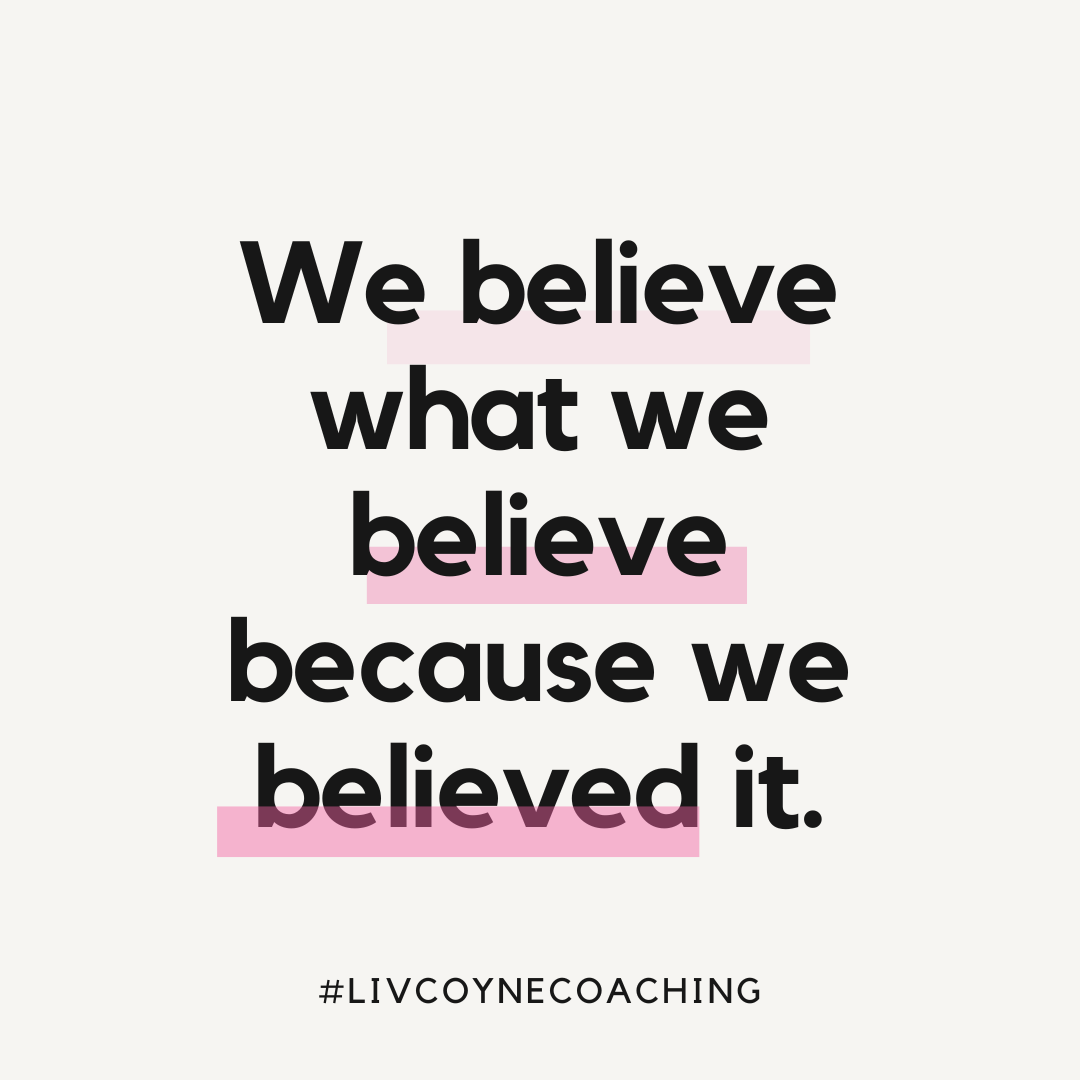SYBF Week 4: Affirmations
This week, we're leaning into affirmations - positive statements you repeat to yourself that help strengthen and tone your brain. How you feel, think, and believe about yourself stands between you and the feeling of fulfillment.
Before we dive into this week’s topic, a friendly reminder to write a reflection on a growth mindset.
Affirmations
I heard this quote a few weeks ago, and it’s been on my mind since:
It’s so simple and says it all. So many times in my life, I thought and said,
“If [blank] happens, I will be happy.”
“When [blank] is done, I will be happy.”
“When I reach [blank], I will be happy.”
As we sit with this quote, let’s use it to honor our past selves. Our past self believed that achievements, experiences, knowledge, jobs, partners, friends, etc. would make us happy. External experiences can never make us happier than we are inside ourselves. This does not make us fools; this is our opportunity. Because we know and believe we can be happy, we have the key ingredient to make it happen: desire. We can have it because we want it and seek it. One of the ways we can continue on our path to get there is through affirmations.
Science
Science shows that affirmations restore self-competence and confidence, allowing us to build, maintain, and regain self-worth, especially during difficult times. Self-affirmation theory, a psychological theory, explains that affirmations restore self-competence and confidence, allowing people to build, maintain, and restore self-worth, especially in times of difficulty or challenge. According to this theory, when we affirm our values and strengths, we reinforce our sense of self-worth and competence, which in turn, helps us cope with challenges and maintain a positive self-image.
Neuroplasticity, the brain's ability to adapt to new situations and learn new things over time, allows affirmations to work. It's the brain's 'rewiring' process. We can easily see neuroplasticity in young children as they learn words, behaviors, concepts, and social practices quickly. Young children’s brains are primed for learning as quickly as possible, and they don’t have tens of years of information that adults have worked into their brains. Despite what it seems, this is where our advantage lies. We already have firmly laid brain paths (neural pathways), which we can use to our advantage with affirmational messages.
Our core values, deeply ingrained beliefs that guide our behavior and decisions, are woven into our neural pathways. Reinforcing these values over time creates depth in our beliefs. When we experience alignment with our core values, we feel more satisfaction and general contentedness. When we think we or others are compromising our core values, we experience discomfort. We can use affirmations to reprogram negative self-talk and build resilience through positive messaging.
Making the most of Affirmations
Affirmations are most potent when they are believable to us and align with our inner desires for ourselves. We need to create affirmations that are specific, realistic, and meaningful to us. When we shape our self-perceptions, we can train our minds to affirm the truth of who we are and grow more fully into who we want to be. Start by believing that affirmations can be true about you over time.
By now, this phrase should look pretty familiar to you:
The point is not perfection. The point is to try!
It sounds like an affirmation because it is. When I’m doing something challenging, especially something new, I say this phrase again and again. It reminds me to put aside my desire for perfection. This phrase allows me to try without expectations of a certain level of performance. Each time I try, I get closer to doing something better.
Activity
Like last week, we have one activity with multiple steps. This process can be completed at one time, requiring at least 30 minutes, or can be completed over many days. Unlike last week, take these steps in order, as they will help you find your most effective affirmation(s). You may identify as many affirmations as you want. The activity is designed to help you identify your core values and create affirmations that align with them. This will make your affirmations more meaningful and effective.
Identify your core values.
Use this Common Human Values list (or another of your choice).
In 5 minutes or less, select up to 10 words that describe your values. You may add new words or short phrases on the lines at the end of the list.
In 3 minutes or less, narrow your list down to 5 words
In 2 minutes, narrow your list to 3 words or less. Now you have your top 3 core values.
Explore your core values
Write your core values at the top of a page in your journal.
Reflect on how each of your core values show up in your life. Be sure to cover all three core values. Some areas to consider as you explore these are friends, family, work, art, spirituality/religion, music, volunteerism, etc.
Identify your affirmations—With your core values in mind, find your affirmation(s). You may write your own or adopt one from a pre-determined list. Choose one or both of the strategies below to identify your affirmations.
Write your own—create an affirmation that is short, sweet, memorable, inspiring, and connected to your core values.
Select from our curated list of affirmations. You can use them as they are or adapt them to meet your needs.
Practice - After identifying your affirmations, practice them throughout the rest of the week. Some tips for practicing your affirmations:
Say them out loud
Practice them throughout the day
Repeat them as a mantra when you feel stressed or particularly challenged
Use the present tense
Repeat your affirmations at specific times of day, such as
In your daily meditation practice
First thing in the morning or just before bed
Use specific affirmations that you repeat when you are practicing a few skills.
When you are feeling stressed or other uncomfortable or undesired feelings
Remember to enjoy the journey of discovering your best self through affirmations. As always, I’ll check in with you later this week!



